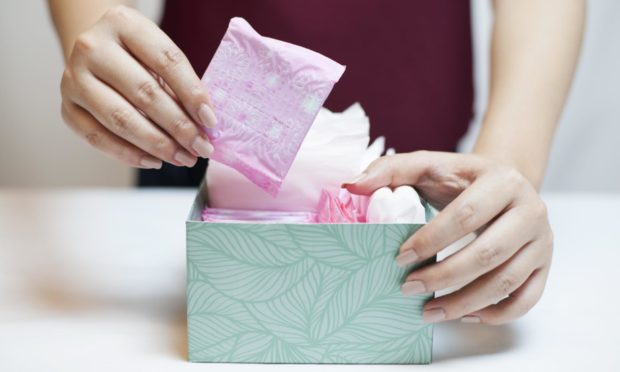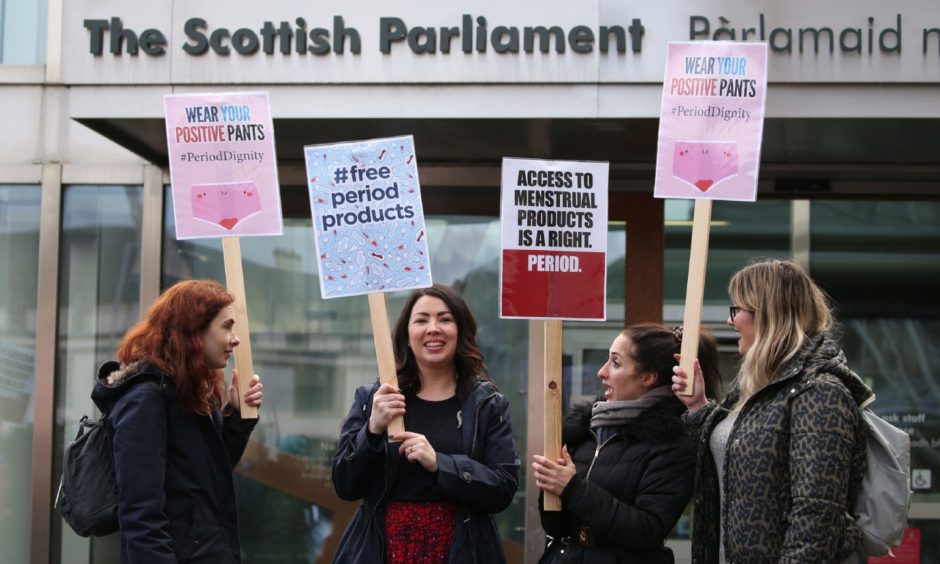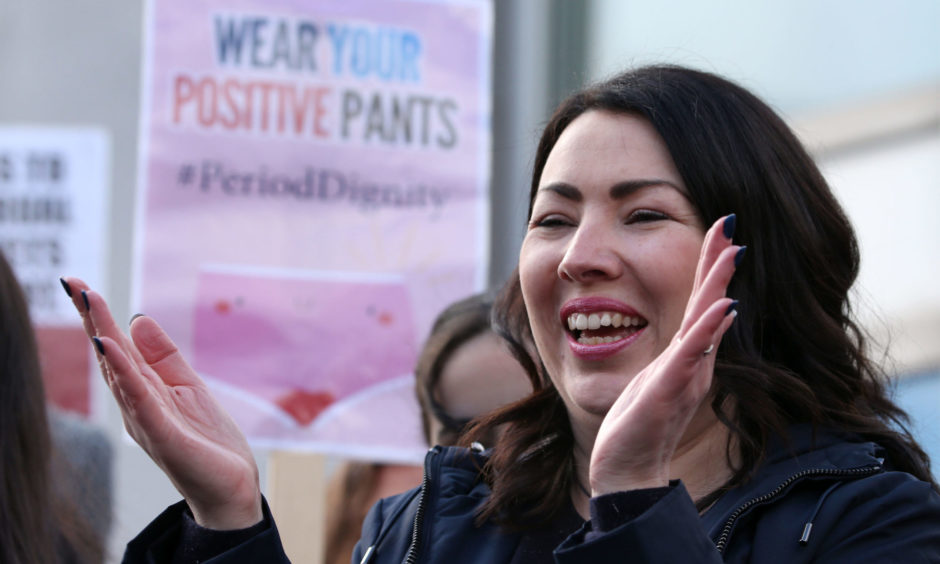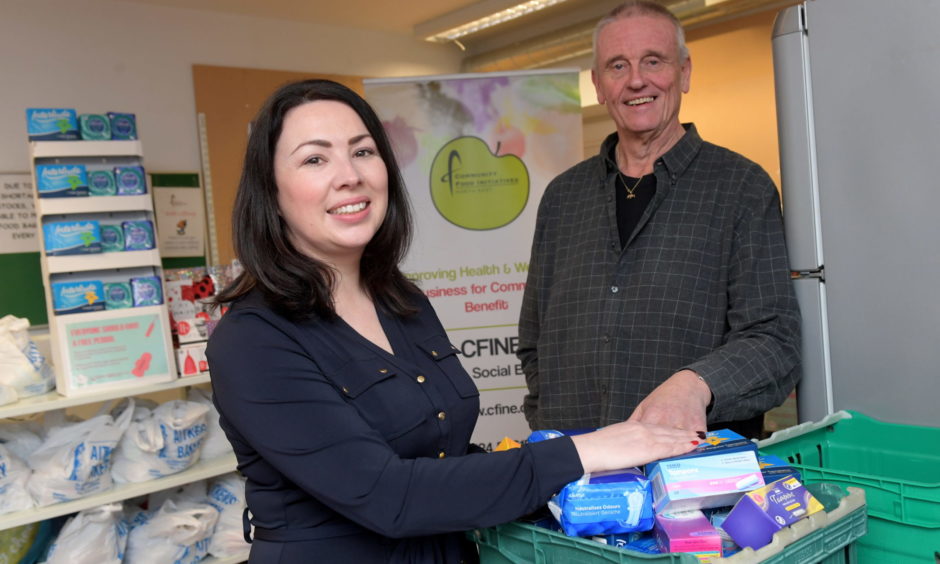Scotland will become the first country in the world to introduce free universal access to period products if a landmark bill passes through Holyrood today.
The pioneering legislation will make it a legal requirement for sanitary products, such as tampons and towels, to be freely accessible to anyone who needs them.
The move follows a four-year campaign by Scottish Labour health spokeswoman Monica Lennon who has championed the issue since she was elected to the Scottish Parliament in 2016.
The bill, which will be voted on by MSPs today and if successful become law, has attracted worldwide attention since it was introduced to the Scottish Parliament last year.
‘A big opportunity’
Ms Lennon said: “It means everything because I know how big a difference it will make to the lives of women and girls and everyone who menstruates in Scotland and will hopefully inspire similar action in other parts of the world.
“Since I’ve been elected, back in 2016, I’ve campaigned on this pretty much every day and I’ve been speaking to thousands of people across Scotland who have experienced the indignity of period poverty themselves and told me what that was like.
“We’ve got a big opportunity to be the first country in the world to pass this legislation. I just hope we’re not the last to do so.
“For decades and across the world women and girls equality campaigners have been fighting for period dignity.”
The legislation will enshrine in law the requirement for schools, colleges and universities to provide the products for free.
It will also place a duty on local authorities to make sanitary products available for all who require them and builds on the work of some councils who are already providing free tampons and sanitary towels in settings such as libraries and community centres.
The Labour politician says the country will eventually reach a point where period products are “as accessible in a public bathroom as toilet paper”.
“When you go into a public building, toilet roll is there free at the point of need”, she adds.
“It should be the same for period products.
“It’s a normal bodily function, a fact of life and the alternative is that people bleed through their clothing.”
Helping to tackle stigma
The legislation has been on something of a journey over the last four years but began in 2016 when Ms Lennon recalls walking up and down parliament cradling boxes of tampons and sanitary pads in a bid to get her politicians to sign her motion to hold the first debate on the subject.
The Scottish Labour politician says one of the other benefits of the campaign has been a “big push for menstrual wellbeing and education” and a recognition that the school curriculum has been lacking in terms of arming girls with knowledge about their menstrual cycle.
The bill’s passage through parliament has also helped tackle stigma and enabled the discussion of periods to become “mainstream”, according to the MSP.
She points to the number of men who have contacted her personally to say they find it much easier to discuss periods, with their own family and their daughters.
Ms Lennon adds that the bill has come a “long way” and that when one hears someone criticise it, “it’s very much on the margins”.
She says: “A lot of young people still feel embarrassed about asking for products. It’s difficult to share and open up about those experiences.”
Bill will ‘break down some barriers’
The scheme, which is estimated to cost about £8.7 million a year, will provide universal access to period products and will not be means-tested.
Aberdeenshire councillor and Cosla president Alison Evison has been “instrumental” in pushing the bill forward, according to Ms Lennon.
Ms Evison said: “Nobody should have to face the stress of being unable to afford the period products they require. Everyone should have access to what they need, with dignity.
“This bill will break down some of the barriers which have prevented some people from living as they would wish in their local communities. It will help ensure that menstruation is at last accepted as a normal part of life.
“It is my hope that work undertaken to date, both locally and on the bill, will continue to benefit our communities and help ensure period dignity going forward.”
The campaign has been heavily supported by charity Endometriosis UK, which supports the one in 10 women across the UK who suffer from the chronic condition.
Ms Lennon said the discussion around periods prompted by the bill has raised awareness of conditions such as endometriosis and has helped “break down barriers”.
It will also “take financial worry away” from those sufferers who need to buy more products than average, as heavy periods are a common symptom of the condition.
The MSP says: “I really hope it will push women’s health further up the political agenda because there are so many taboos and gendered health inequalities that women and girls face.”



